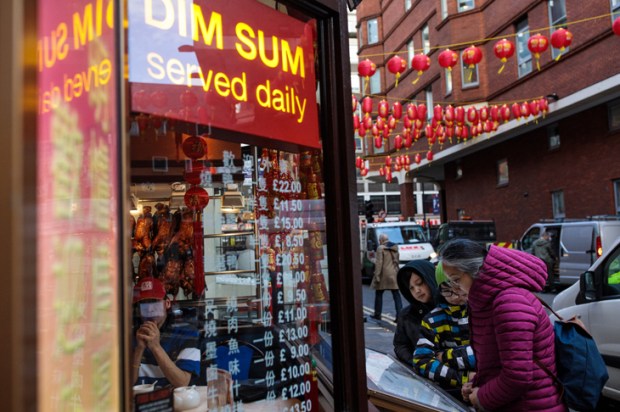Andrew Bolt, among others, has been scrupulous in drawing our attention to what he calls ‘race baiting’. For example, Greens Senator Lidia Thorpe who complained that sending Australian Defence Force soldiers to help the vaccine rollout in Aboriginal communities was proof of ‘systemic racism’. She then turned around and said that Aboriginal communities ‘are not getting the (Covid vaccine) help they so urgently need’. So – both helping and not helping are racist! So, what is ‘race baiting’ exactly? The term is an American coinage first recorded in 1920. The definition in the Oxford English Dictionary probably can’t be bettered: ‘The incitement or exploitation of racial hatred, prejudice, or tension, usually (esp. in later use) for political gain’. The meaning comes from a much older (14th century) English word ‘baiting’ meaning to set on dogs to bite or worry another animal (the source is an old Norse word meaning ‘to bite’). ‘Bait’ is etymologically closely related to ‘bit’ — we put ‘bait’ on our fishhooks to get a ‘bite’. In the Middle Ages this gave us the appalling spectacle of ‘bear baiting’ – where a bear was chained with restricted movement, and a pack of dogs was set on the larger animal to worry and bite it. In the political arena ‘race baiting’ is the lineal descendent of ‘bear baiting’. The ‘race baiter’ is trying to nip, bite, snarl at and worry by inciting racial discord. In the cases that are most often drawn to our attention these days the target of the race baiter is the whole white population – whose standing and composure the race baiter wants to erode. The non-racist white population of Australia (the vast majority) can rest easy – the ‘race baiters’ are a pack of whining, snarling dogs and can be safely ignored.
I’ve written before about Brandeis University in the United States and its quite bizarre Oppressive Language List (words that students are banned from using). Now Laura Ingraham of Fox News has drawn my attention to another word on that list – ‘picnic’. This word for an informal meal eaten out of doors has been part of the English language since at least 1748. It comes from the French pique-nique (originally in 1694 in repas à piquenique – and used from 1718 to denote a meal at which each person pays for or contributes a share of the food; also denoting a meal eaten out of doors). It’s hard to think of a more harmless word. So how could it possibly give offence or earn a place on an Oppressive Language List? Well, according to Brandeis the word picnic ‘has been associated with lynchings of black people in the United States, during which white spectators were said to have watched while eating’. Even if they have this bit of history right it is still absurd to ban the word ‘picnic’. It is rather like banning the word ‘dinner’ because Adolf Hitler was known to eat dinner. It’s that ridiculous. The Oppressive Language List surfaced just weeks after a Brandeis administrator was revealed to have said on social media that ‘all white people are racist in that all white people have been conditioned in a society where one’s racial identity determines life experiences and outcomes and whiteness is the norm and default’. Strangely the exact opposite is true: all woke people are racist because they insist on dealing with people on the basis of their race, not what they really do or say. The woke judge people by the colour of their skin (in this case ‘white’) instead of the content of their character. It is the woke who are using language to promote racial division in the world today.
Got something to add? Join the discussion and comment below.
Get 10 issues for just $10
Subscribe to The Spectator Australia today for the next 10 magazine issues, plus full online access, for just $10.
Contact Kel at ozwords.com.au
You might disagree with half of it, but you’ll enjoy reading all of it. Try your first month for free, then just $2 a week for the remainder of your first year.














Comments
Don't miss out
Join the conversation with other Spectator Australia readers. Subscribe to leave a comment.
SUBSCRIBEAlready a subscriber? Log in